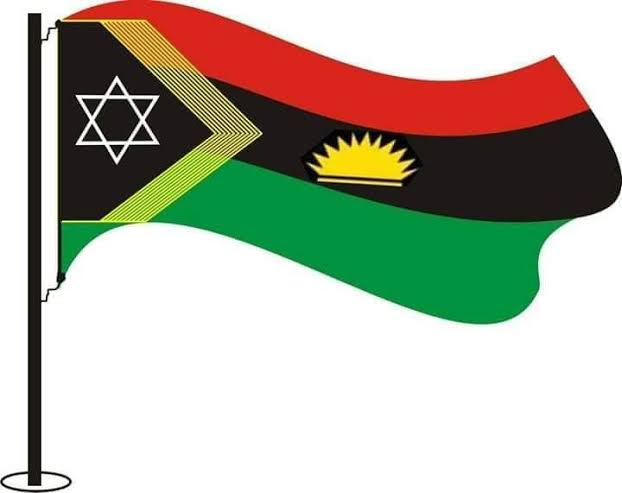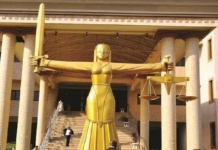
By Olakunle Agboola – We can question our mental reasoning, if it is possible to consolidate the framework of the modern African state while giving recognition and maximum utility to the component elements of ethnicities, cultures, and aspirations for modern ideology.
Diverse secessionist movements are back in the spotlight in Africa. The roots often go back to the colonial era, and some of these conflicts still smoulder today.
Ethnicity is more than skin colour or physical characteristics, more than language, song, and dance. It is the embodiment of values, institutions, and patterns of behaviours, a composite whole representing a people’s historical experience, aspirations, and worldview. Deprive a people of their ethnicity, their culture, and you deprive them of their sense of direction and purpose.
In the process of colonial state formation, groups were divided or brought together with little or no regard to their common characteristics or distinctive attributes. They were placed in new administrative frameworks, governed by new values, new institutions, and new operational principles and techniques.
It looks like what most African leaders could manage, while after independence they were eager to disavow tribalism as divisive. Unity was postulated in a way, that assumed a mythical homogeneity amidst diversity. Kwame Nkrumah, of Ghana, outlawed parties organized on tribal or ethnic bases. Houphouet-Boigny of Côte d’Ivoire co-opted ethnic groups, through the shrewd distribution of ministerial posts, civil service jobs, social services, and development projects. Julius Nyerere, a scion of tribal chieftaincy, stamped out tribalism by fostering nationalistic pride in Tanganyika and later, Tanzania, born out of the union with Zanzibar. Jomo Kenyatta of Kenya, forged a delicate alliance of ethnic groups, behind the dominance of his Kenyan African National Union party. In South Africa, apartheid recognized and stratified races, and ethnicities to an unsustainable degree.
How well is ethnicity, being managed or how well has Africa benefited from its ethnic diversity, not minding the cultural milieu and structure of which African states were built upon by the colonial masters? Some people, have argued that, it ought to be a smooth experience looking beyond cultural differences and tribal lines. On the other hand are thoughts, that the colonial masters purposely, created a conflict for selfish reasons, all to the advantage of economic control over leadership control, which Nigeria and Cameroon are classical examples.
After World War I, the German colony of Cameroon, was placed under a British and French mandate. A referendum in 1961, sealed the future of British Cameroon: The northern region decided to join Nigeria, while the southern region aspired to become part of the Republic of Cameroon — the former French colony.
Today, Cameroon’s English speaking population is in the minority — and complains of being marginalized compared to the French majority.
These tensions, eventually boiled over into a violent conflict dubbed the Anglophone Crisis, which has resulted in more than 3,000 deaths.
Ethnic prejudice and favouritism cannot be easily rooted out, as the major problem causing conflict and under-development in Africa. Turning back the hands of time, maybe Africa could have grown beyond the ethnic lines and embraced diversity but for obvious reasons, thecontinent has continued to fall trap of dedicated leaders and strong democratic institutions free of tribal bigotry, that can rally men and women together to a common purpose. The dilemma, is the same in Africa as hegemonic elites in power in many countries, continue to rule rather than govern, looking mainly after the interests of their ethnic group on whom their power mostly depends.
This has led to a movement of alienation across the continent, having more than fifteen African countries, presently battling with the problem of secession. This has become a huge concern, with protests and calling on the international community for help. The grievance has been marginalization and ethnic discrimination, which the only perceived solution to the instigators, is to break away and have a nation of their own.
Biafra, is a classical example of the divergence movement in Nigeria, as the Yorubas from the western region, also have joined in the same struggle of having their own nation. This is the result of insecurity and killings of innocent citizens by the Fulani’s herdsmen, which seems not to have a lasting solution among other problems. Managing ethnic diversity within the unity of the colonial borders, is a challenge that African states are reluctant to face, but cannot wish away.
At the moment, for the overwhelming majority of African countries, the quest for unity underscores the intensity of disunity. As long as the Africans avoid confronting the issue of ethnicity and fail to develop norms and means for managing diversity within the framework of unity, peace and stability will continue to elude the pluralistic state. Not only that, different ethnic tribes will continue to break away, asserting their state of freedom.
Kindly follow us on twitter:@AfricanVoice2










